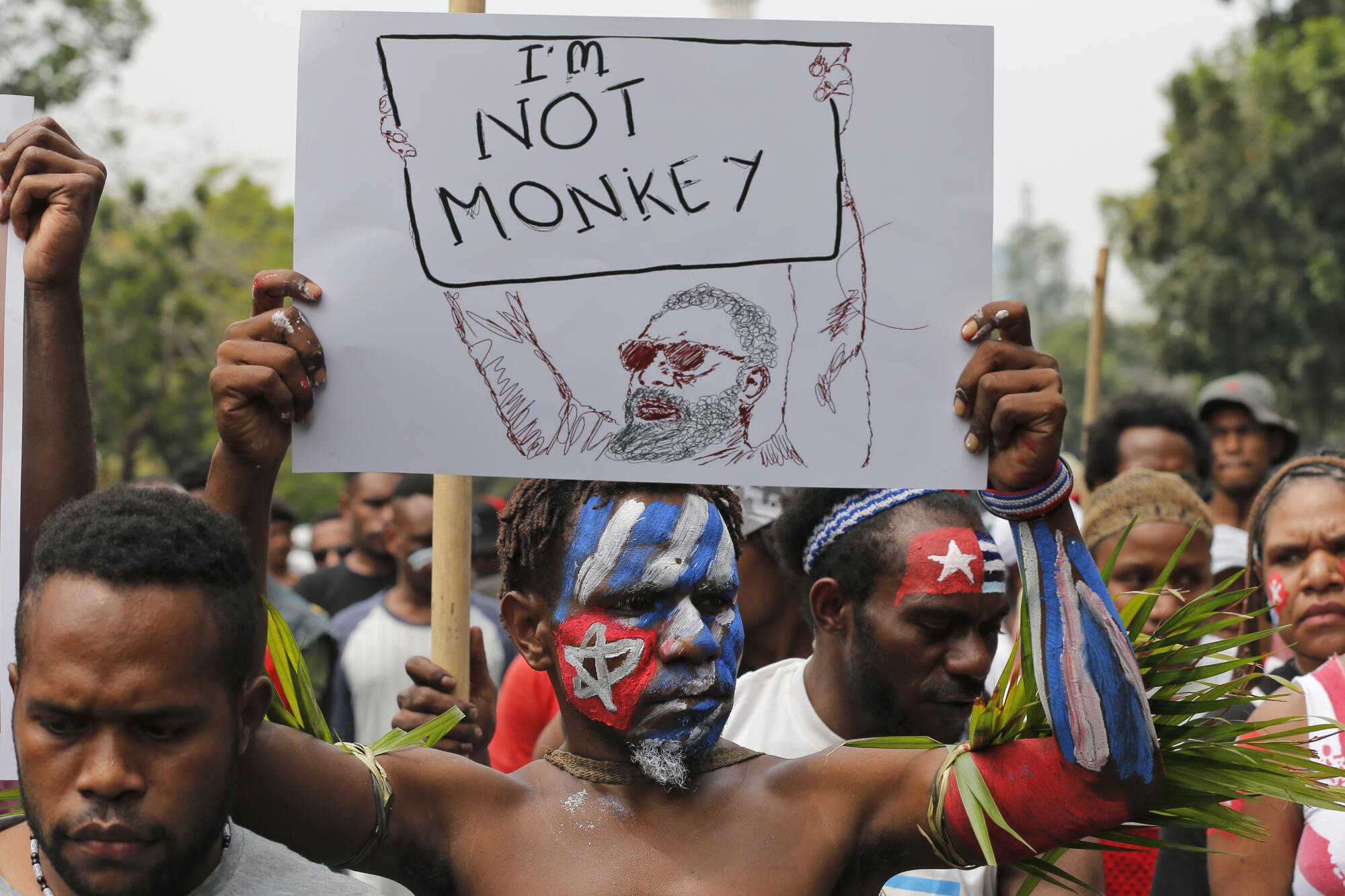
- Share via
SINGAPORE — Buchtar Tabuni steeled himself for the prospect of 17 years in prison, unaware that his future would be tied to protests over the fate of another dark-skinned man more than 8,000 miles away in the U.S. city of Minneapolis.
An Indonesian court had found Tabuni guilty of treason for masterminding demonstrations last year over the mistreatment of the country’s Papuans, an independence-seeking indigenous minority whose members have long been shunned and attacked.
Tabuni, who denied the charges, reasoned his time in prison would draw attention to Indonesia’s often brutal subjugation of his people. But in an unexpected turn, the veteran activist and six other convicted Papuans were sentenced to jail terms that lasted only months.
The fate of the Balikpapan 7 — as Tabuni and the other men were known because of the city where they were tried — was altered by calls for justice and equality after George Floyd’s killing in America reverberated across Indonesia, triggering a groundswell of support for Papuans in a country that often avoids confronting national traumas.
“The government was afraid,” the 40-year-old Tabuni said through a lawyer from his jail cell recently. “Black Lives Matter has triggered support for oppressed Papuans.”
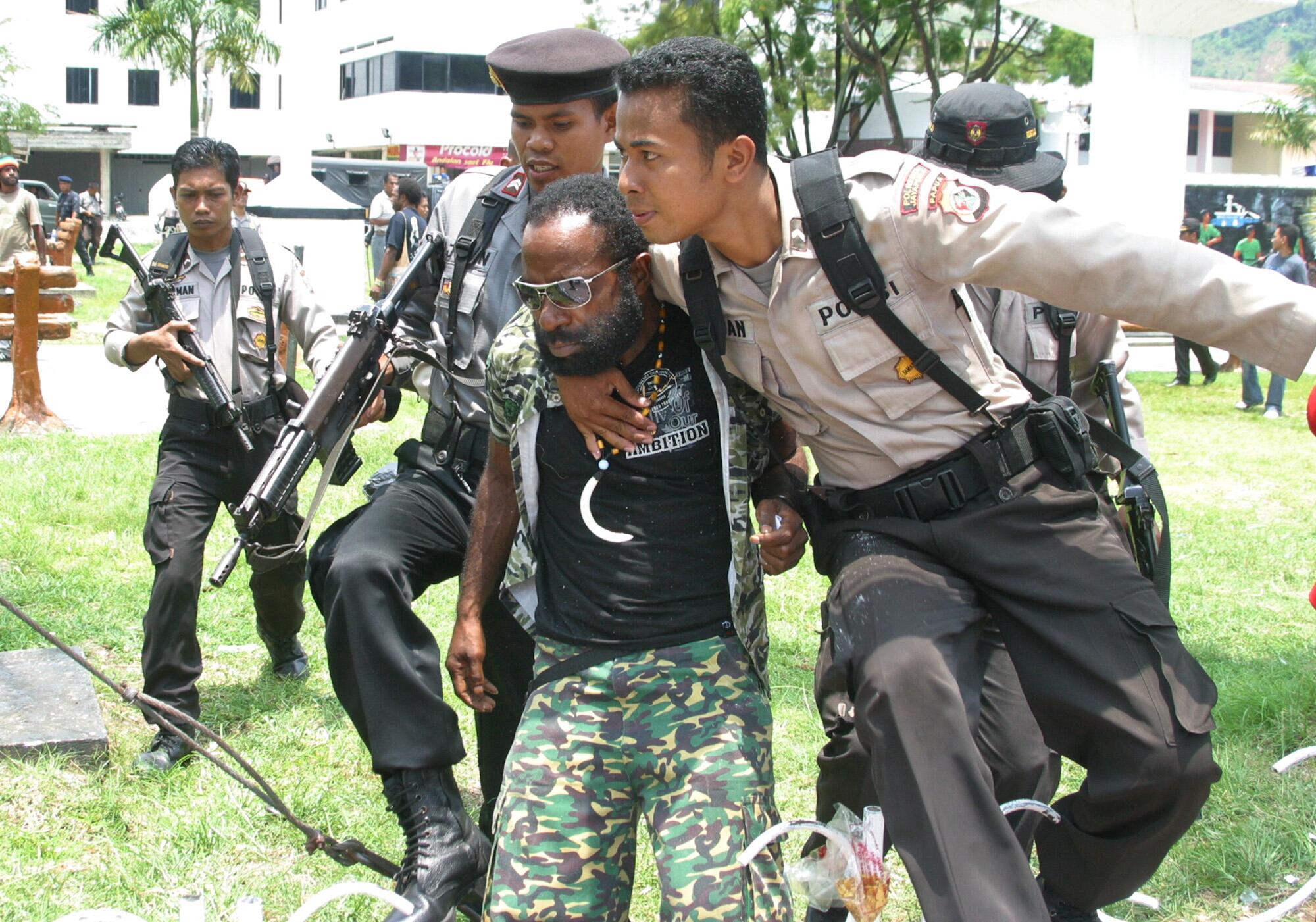
In the past month, social media have been awash with the #Papuanlivesmatter hashtag, which has attracted backing from actors, artists and many of Indonesia’s progressive youth. University student groups have organized online seminars with Papuans and human rights activists, sparking conversations that would have never happened in the past. And non-Papuans have taken to the streets calling for change, including in a city better known for its Islamic schools. (Papuans are largely Christian, a religious minority in the predominantly Muslim country.)
“Many Indonesians wouldn’t be reflecting on the injustice toward Papuans if it wasn’t for George Floyd,” said Fajar Nugroho, 22, president of the University of Indonesia’s Student Executive Board, which organized webinars promoting Papuan Lives Matter.
“People saw the similarities with racial discrimination here and became curious,” said Nugroho, who is Javanese, Indonesia’s dominant ethnic group. “They wanted to know more about why it was happening. This complex history needs to be told.”
A forced national identity
Hailing from a resource-rich territory called West Papua on the island of New Guinea, the 2-million-strong Papuan population has long argued that its members do not belong to Indonesia, an archipelago that’s home to 270 million people. As ethnic Melanesians, they share a closer kinship with people of Papua New Guinea, Fiji, Vanuatu and the Solomon Islands.
Their story is one of centuries of colonization, from the Dutch to the Javanese rulers in Jakarta, the Indonesian capital separated by 2,000 miles of sea. West Papuans thought they were poised to become independent in 1961 — they even designed their own flag, the Morning Star banner — but the Dutch had other plans.
Under pressure by Washington to appease Indonesia to help blunt the spread of communism, the Netherlands signed the 1962 New York agreement, which gave Jakarta temporary control of West Papua until a referendum could determine the territory’s future.
That vote, known as the 1969 Act of Free Choice, lies at the core of the Papuan conflict. The Indonesian military handpicked 1,026 local elders to represent West Papua at the ballot, ordering some at gunpoint to vote in Jakarta’s favor. Indonesian control was voted in unanimously.
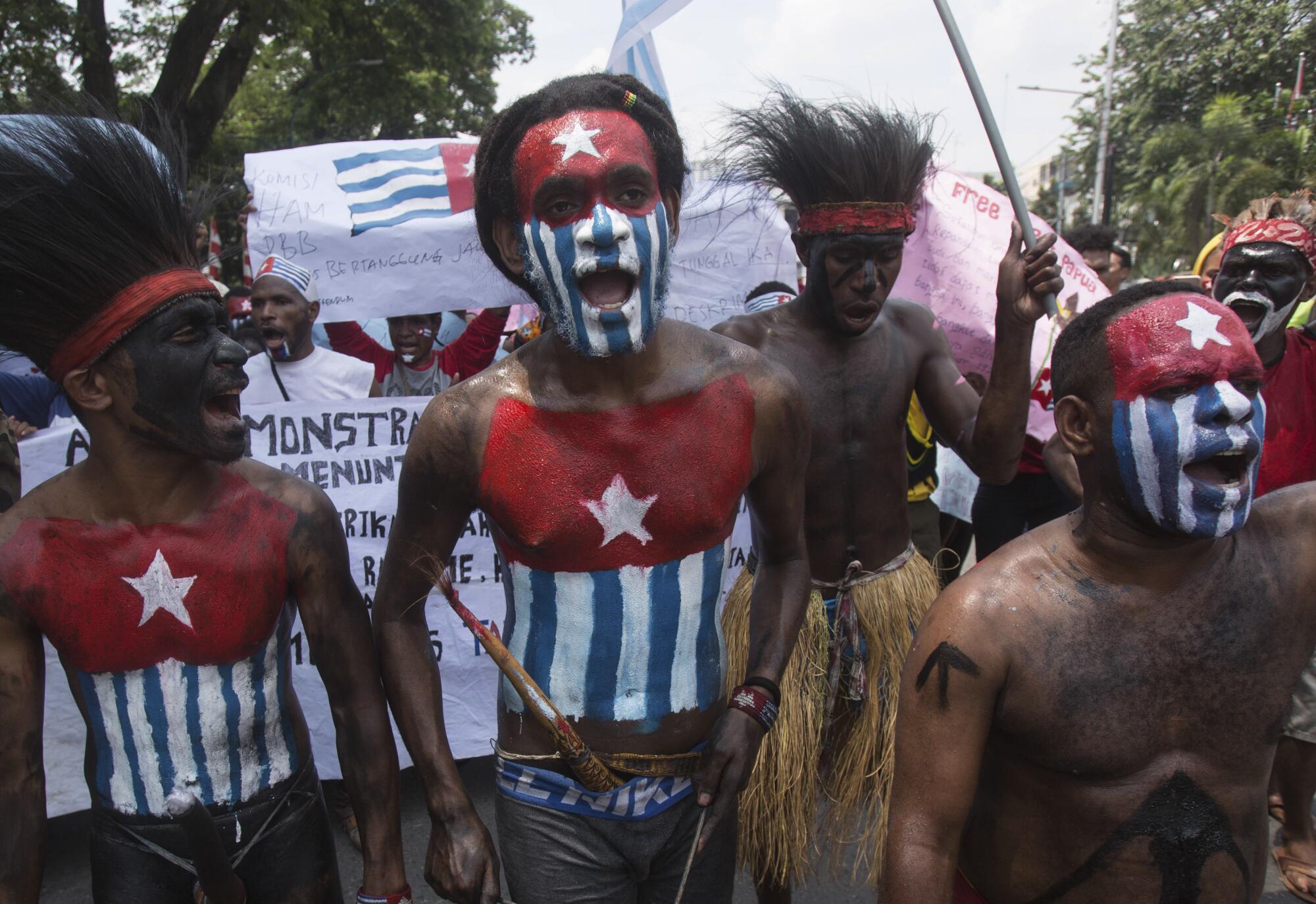
That brought a new era of exploitation of West Papua’s natural resources that experts say continues unabated today, enriching Indonesia’s military and civilian elite.
The rainforests central to Papuan identity, culture and livelihood are being cleared for palm oil plantations, Indonesia’s ubiquitous cash crop. Migrants and settlers from around the country have filled the region, and Papuans are now a minority in West Papua, a landmass roughly the size of California.
Few good jobs and threadbare health and education systems have contributed to the highest poverty rates, lowest literacy rates and highest mortality rates for children and expectant mothers in Indonesia.
“West Papuans are being marginalized on their own land,” said Veronica Koman, an Indonesian human rights lawyer self-exiled in Australia because she faces charges at home of inciting unrest for amplifying on social media instances of abuse against Papuans.
“The natural resources aren’t being used to pay for schools or hospitals,” she said. “The government keeps building infrastructure and roads, but who is it for? West Papuans don’t have cars. It’s for companies to continue exploiting the environment.”
No development epitomizes the economic interests at stake more vividly than the 47-year-old Grasberg mine, a sprawling craggy pit high on a glacier-capped mountain range that contains some of the world’s largest deposits of gold and copper.
The mine, which is jointly owned by the Indonesian government and the Phoenix-based company Freeport-McMoRan, has been racked over the years by labor strife, environmental degradation and corruption. The company says in its sustainability report that it provides jobs, training and some healthcare to local Papuans.
The mine’s presence has contributed to the militarization of West Papua, which is also home to an armed faction of the independence movement that’s waged a low-level insurgency against the Indonesian state since 1970.
Shootings in the region abound, including one in March in which a miner from New Zealand was gunned down outside Freeport’s offices.
In 2018, separatists killed more than two dozen construction workers building a major highway considered a signature infrastructure project in Jakarta’s bid to pacify West Papua.
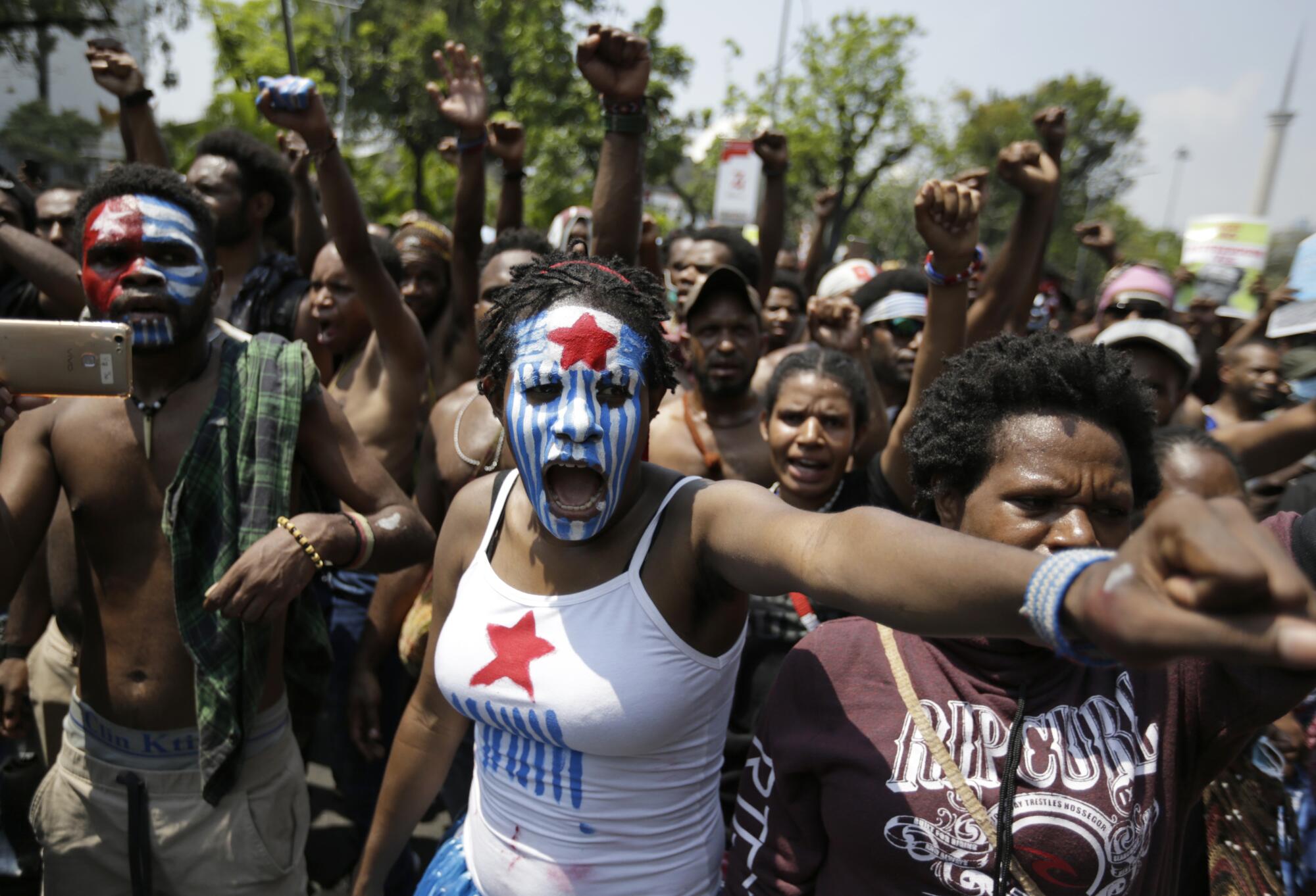
‘A ticking bomb’
Many Papuan activists disavow the violence carried out by the insurgents, who are largely confined to West Papua’s remote highlands. They say Papuan calls for self-determination are overwhelmingly peaceful. Yet Indonesian state security forces continue to arrest activists and inflict bloodshed with impunity on the ethnic group, according to human rights activists.
Experts say well over 100,000 Papuans have been killed since the 1960s to quell the rebellion.
Amnesty International documented 69 unlawful killings of Papuans by security forces between January 2010 and February 2018.
In April, the bodies of two Papuans — 19-year-old Eden Armando Babari and 21-year-old Ronny Wandik — were discovered with bullet wounds along the banks of a river near the Freeport mine complex. Activists say they were killed by police in connection with the death of the New Zealand miner.
Last summer, dozens of Papuan protesters died in some of the country’s worst unrest in years — tensions the Balikpapan 7 were blamed for fanning.
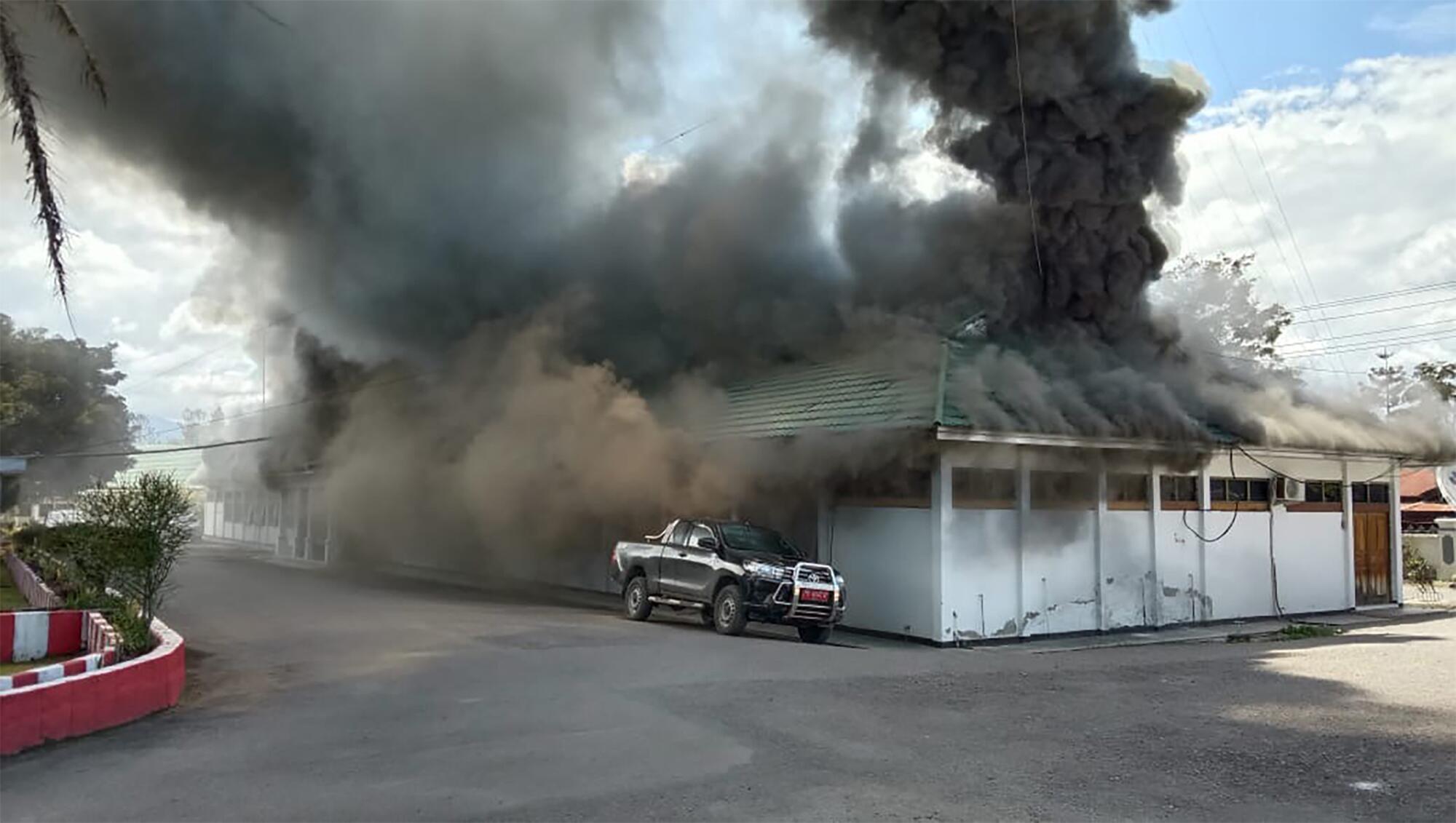
Demonstrators set fire to government buildings and security forces fired live rounds into crowds. The protests were sparked by vigilantes and police in the eastern Javanese city of Surabaya who stormed a university dormitory filled with West Papuan students accused of desecrating an Indonesian flag. Mobs outside shouted racial slurs, calling the students “monkeys,” “dogs” and “pigs.”
The violence renewed calls for independence, prompting the Indonesian government to block internet access in West Papua and restrict access to journalists.
The crisis damaged the goodwill that Indonesian President Joko “Jokowi” Widodo had generated in the region while campaigning for reelection — and the crackdown exposed the president’s inability to rein in Indonesia’s military, which has a vested interest in providing security in West Papua.
“West Papua is like a ticking bomb,” said Made Supriatma, an Indonesia expert and a visiting fellow at the ISEAS–Yusof Ishak Institute in Singapore, who criticized Jokowi’s infrastructure drive for alienating Papuans because it was largely seen as benefiting outsiders. “Papuans are starting to see infrastructure as systemically racist.”
‘I was still colonized’
Years of colonization have contributed to Indonesian views of Papuans, particularly the poor and uneducated, as primitive and subhuman.
Stores and restaurants often deny Papuans service. Landlords often won’t rent to them. Hospitals and clinics will refuse care to Papuans under the assumption they’re infected with HIV, the virus that causes AIDS, which is rampant in West Papua due to a sex trade that targets migrant workers.
Middle-class Papuans aren’t immune to the discrimination either.
Ligia Giay, a postdoctoral candidate at Murdoch University in Australia, said it’s difficult to escape the inherent prejudices many Indonesians harbor against Papuans.
“My skin is lighter, so I’m spared the worst,” said Giay, 31, who grew up in the Papuan city of Jayapura. “Still, I get backhanded compliments like, ‘You’re proof Papuans aren’t all stupid and rude.’”
Giay isn’t sure Black people in America are exposed to the same level of overt racism that confronts Papuans daily, having never lived in the U.S., but she sees similar experiences in the way both have long grown to distrust police.
“There’s a history of trauma,” she said. “The distrust makes everything the state does suspect to us. You don’t ever think they have your interests in mind.”
Tabuni, the jailed activist, didn’t fully grasp the extent of the racism until he left West Papua to attend college. He was surprised by the way some Indonesians would pinch their noses and say he smelled bad when he rode public transportation.
“I’d be called ‘monkey,’ ‘pig,’ ‘primitive,’ all sorts of things,” Tabuni said. “I didn’t fight back because, in my mind, I was still colonized.”
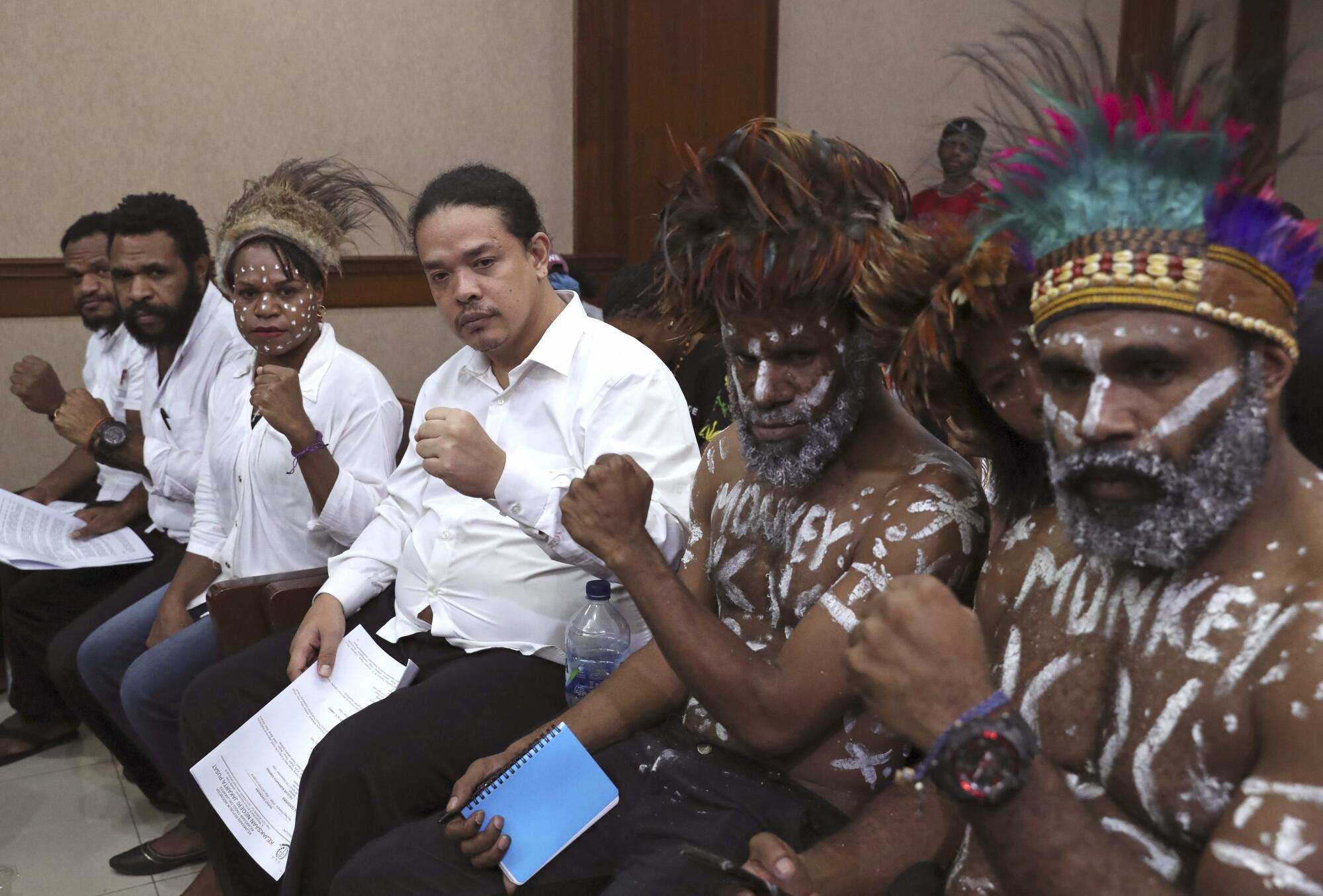
His awakening came in 2001 with the assassination by Indonesian special forces of Theys Eluay, a charismatic independence leader who favored peaceful advocacy over armed insurgency.
Ever since, Tabuni has devoted himself to promoting Papuan self-determination by peaceful means. He’s been arrested and beaten by police three times. He still aches from blows he once took to the head and back from rifle butts.
“I will continue to fight racism,” said Tabuni, who is set to be released Aug. 4. “I extend my sympathies for the passing of George Floyd. We know exactly how it feels. But we also ask Americans for their solidarity; to help us stand on our own two feet as an independent West Papua.”
More to Read
Sign up for Essential California
The most important California stories and recommendations in your inbox every morning.
You may occasionally receive promotional content from the Los Angeles Times.











